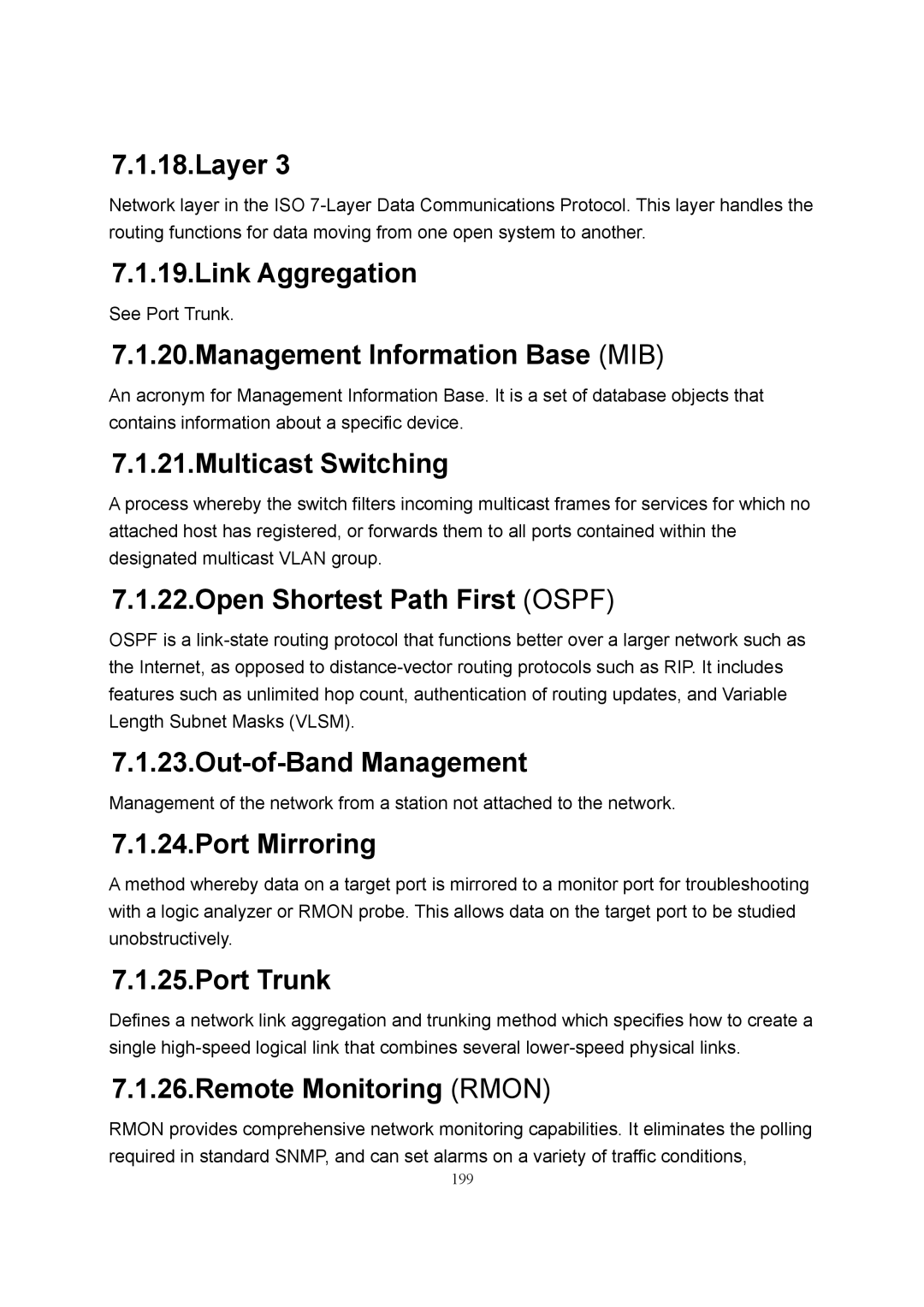7.1.18.Layer 3
Network layer in the ISO
7.1.19.Link Aggregation
See Port Trunk.
7.1.20.Management Information Base (MIB)
An acronym for Management Information Base. It is a set of database objects that contains information about a specific device.
7.1.21.Multicast Switching
A process whereby the switch filters incoming multicast frames for services for which no attached host has registered, or forwards them to all ports contained within the designated multicast VLAN group.
7.1.22.Open Shortest Path First (OSPF)
OSPF is a
7.1.23.Out-of-Band Management
Management of the network from a station not attached to the network.
7.1.24.Port Mirroring
A method whereby data on a target port is mirrored to a monitor port for troubleshooting with a logic analyzer or RMON probe. This allows data on the target port to be studied unobstructively.
7.1.25.Port Trunk
Defines a network link aggregation and trunking method which specifies how to create a single
7.1.26.Remote Monitoring (RMON)
RMON provides comprehensive network monitoring capabilities. It eliminates the polling required in standard SNMP, and can set alarms on a variety of traffic conditions,
199
